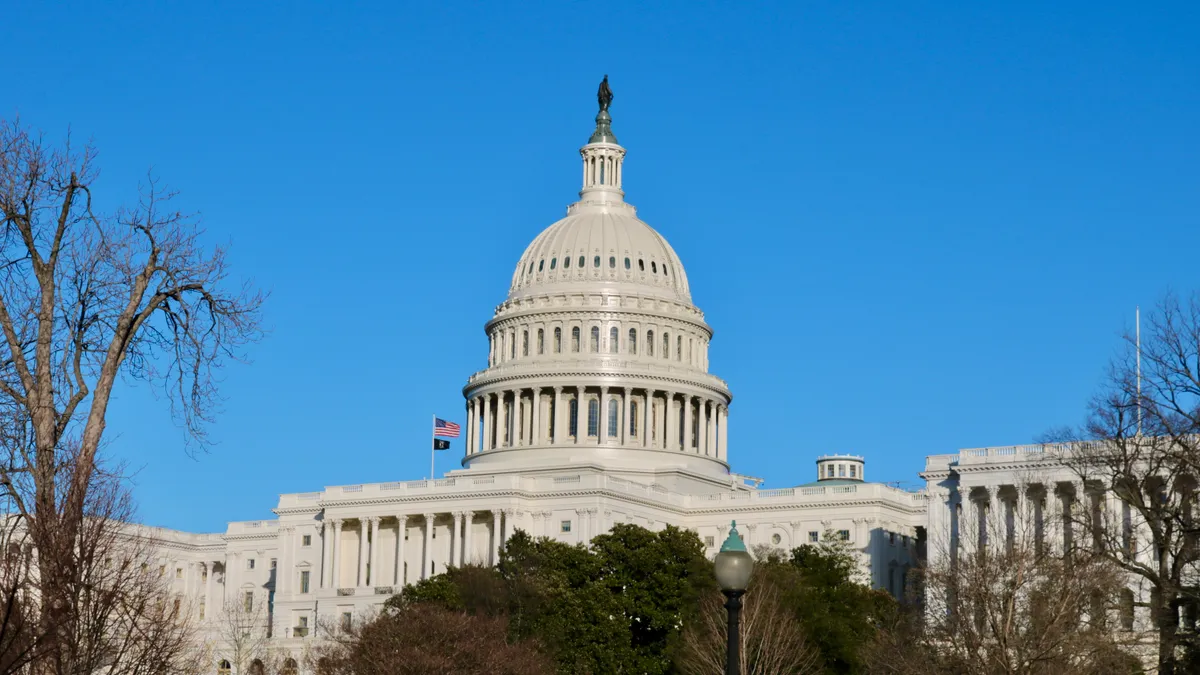Dive Brief:
- Lawmakers are pushing ahead with plans to include a breakthrough device payment pathway in the next version of the 21st Century Cures Act.
- Having included a version of the Medicare Coverage for Innovative Technologies (MCIT) initiative in the Cures 2.0 discussion paper in June, lawmakers kept a tweaked proposal in the bill introduced on Tuesday.
- The revised proposal clarifies that the HHS secretary can suspend or terminate coverage of a breakthrough device if it offers no clinical benefit or may cause serious harm to Medicare beneficiaries. The bill seeking to codify MCIT, following last week's repeal of the final rule by CMS, was praised by AdvaMed and MDMA.
Dive Insight:
After months of talks, CMS officially rescinded the MCIT final rule late last week. The action reflected concerns the rule would prevent CMS from ensuring the devices it covers improve health outcomes and are "reasonable and necessary" in Medicare beneficiaries.
Despite opposition from groups including the Association of American Medical Colleges, MCIT could still come into force, with lawmakers proposing to codify the pathway through Cures 2.0. That plan took another step toward realization this week when Representatives Fred Upton (R-Mich.) and Diana DeGette (D-Colo.) introduced the Cures 2.0 bill.
The MCIT section of the text is largely unchanged from the version included in the discussion paper earlier this year. The limited changes the lawmakers have made indicate an awareness of the worries that MCIT will enfeeble CMS.
A new paragraph states nothing in the MCIT section shall stop HHS from using existing authority to suspend or terminate coverage of a breakthrough device if, based on clinical evidence, they determine that in Medicare beneficiaries it "offers no clinical benefit" or "causes, or may cause, serious harm." The rest of the MCIT section is unchanged.
When CMS delayed MCIT in May, it warned the final rule would take away its tools "to deny coverage when it becomes apparent that a particular device can be harmful to the Medicare population." The new text appears to address that concern but says nothing about how CMS will get the data to show if a device is safe and effective in Medicare beneficiaries.
CMS has also raised concerns that the pathway "could be problematic in ensuring these devices are demonstrating value and do not have additional risks for Medicare beneficiaries." The fears, which were voiced by physicians during the consultation process, reflect differences in the evidence needed to get CMS coverage and FDA authorization.
Cures 2.0 presents a chance to enact MCIT, which is supported by the medtech industry, despite continued opposition in some quarters. Analysts at Cowen expect Cures 2.0 and the MCIT section to pass next year on the coattails of other legislation.
"While DeGette and Upton's goal was to pass Cures 2.0 this year, we believe the bill is more likely to move with the reauthorization of FDA user fees in 2022. The user fee program must be reauthorized every five years (current program expires Sept. 30, 2022), creating a must-pass vehicle that typically attracts FDA reforms," the analysts wrote in a note to investors.
Industry groups welcomed the inclusion of MCIT in the latest Cures 2.0 draft, with AdvaMed calling it a "proven and powerful way to spur greater medical innovation" and MDMA saying the bill will make breakthrough devices "more accessible to the patients who need them."











